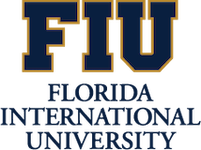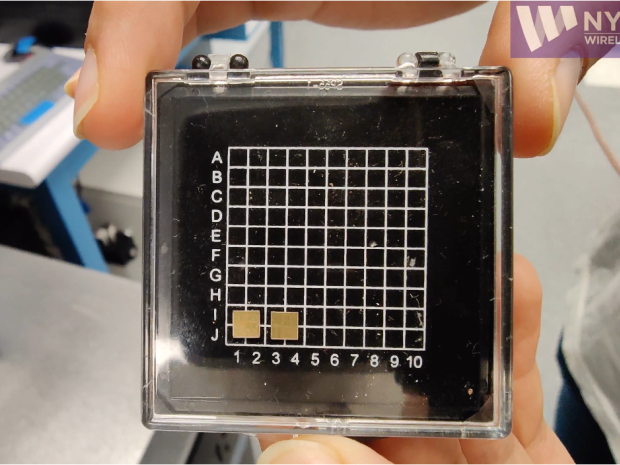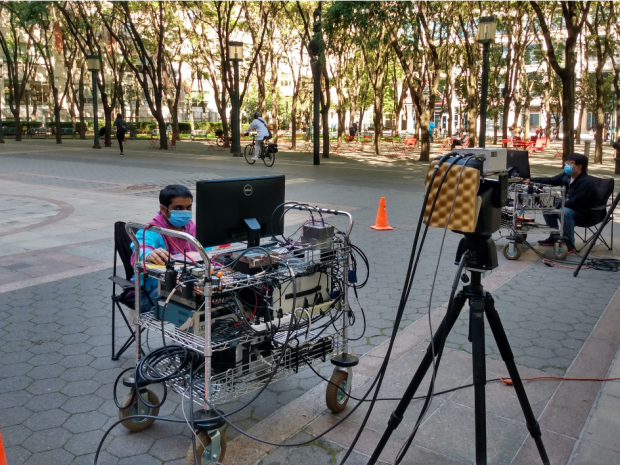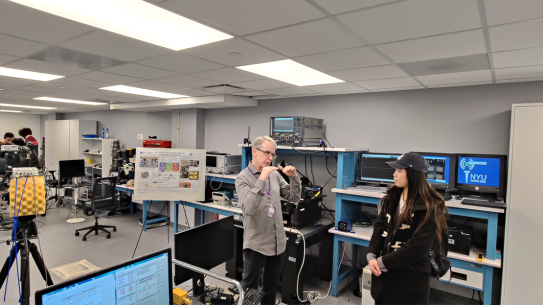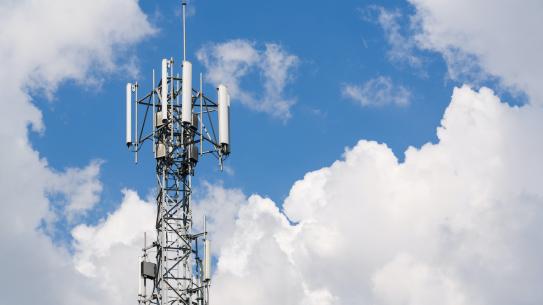Terahertz Measurement Facility (THz Lab)
at NYU WIRELESS

Welcome to a one-of-kind THz measurement facility for the global expansion of knowledge of THz devices, circuits, systems, radio propagation and channel modeling, sponsored by the 2022 NSF MRI Program (Grant 2216332) and through collaboration between NYU, University of Colorado at Boulder, University of Nebraska at Lincoln, and Florida International University.
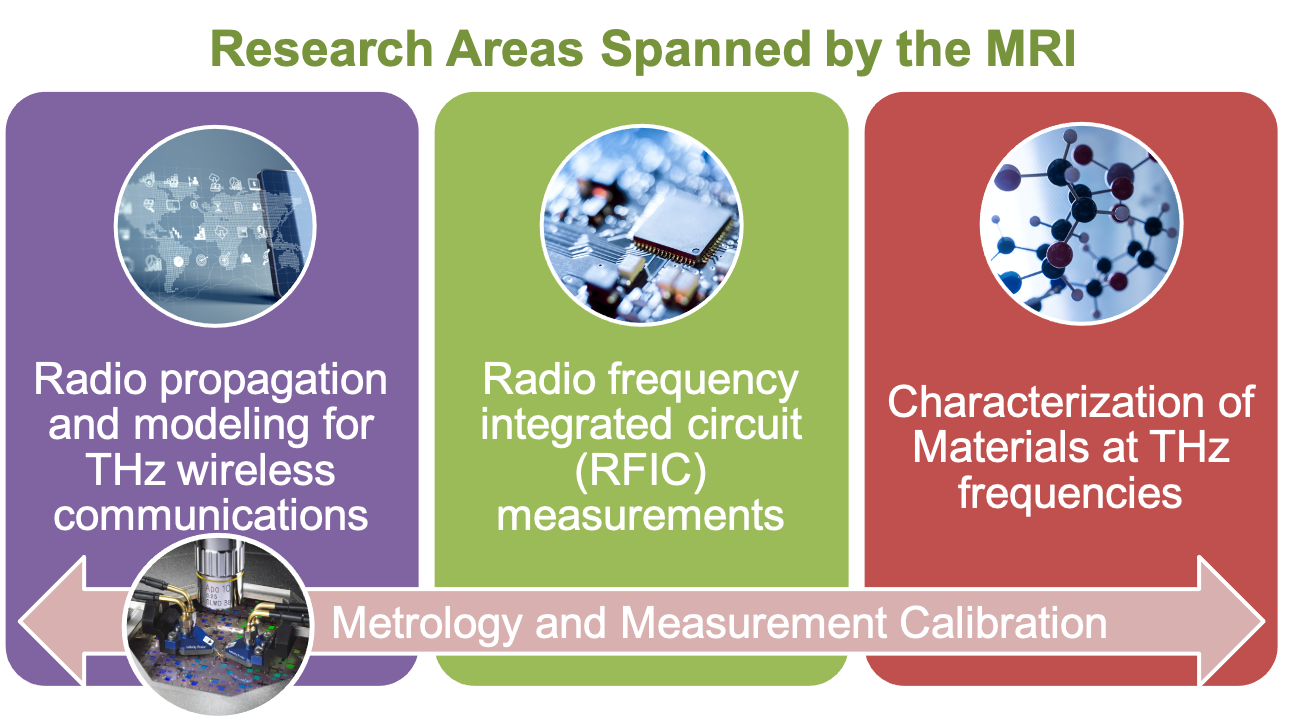
Equipment Partners

Advisor

Research Results
[1] D. Shakya, T. S. Rappaport, E. Shieh, M. E. Knox, H. Rahmani, D. Shahrjerdi, M. Ying, K. Fan, M. Lu, A. Rumiantsev, V. Mallette, G. Fisher, G. De Chirico, P. Ghate, and S. McMahon, "Four-Port Probe Stations and SOLR Calibration Standard Design up to 125 GHz on 28 nm CMOS," Asia-Pacific Microwave Conference (AMPC) 2025, Jeju, S. Korea, 2025, pp 1-3.
[2] M. Manzo-Perez, M. Jamalzadeh, M. Nguyen, C. Nadeau, A. Madden, I. Shiravand, K. Kisslinger, X. Tong, K. Sardashti, M. Senatore, M. LaHaye, D. Shahrjerdi, "Physical patterning of high-Q superconducting niobium resonators via ion beam etching," Applied Physics Letters 127 (9), 2025.
[3] T. S. Rappaport, T. E. Humphreys, and S. Nie, “Spectrum Opportunities for the Wireless Future: From Direct-to-Device Satellite Applications to 6G Cellular,” (Invited) npj Wireless Technology, Oct. 2025.
[4] Madanayake, A. and Lawrance, K. and Kumarasiri, U. and Sen, P. and Cintra, R. J. and Karunanayake, K. and Sivasankar, S., "Joint Communication and Sensing at D-Band SDR and at 5.8 GHz via Multibeam Arrays," IEEE Transactions on Microwave Theory and Techniques. 73 (6), 2025, pp. 3236--3249.
[5] L. Chapagain and S. Nie, "Design and Characterization of Dual-Band Complementary Split-Ring Resonator Array in the D-Band for 6G Wireless Networks," MILCOM 2024 - 2024 IEEE Military Communications Conference (MILCOM), Washington, DC, USA, 2024, pp. 276-281, doi: 10.1109/MILCOM61039.2024.10773912.
[6] Romano, A. and James, G. and Gilbert, R. and Miller, N. C and Johannes, S. and Popović, Z, "Integrated 75–100 GHz In-Band Full-Duplex Quasi-Circulator-Based Front-End GaN MMIC," IEEE Transactions on Microwave Theory and Techniques. 73 (6), 2025, pp. 3121--3132.
[7] J. M. Jornet, V. Petrov, H. Wang, Z. Popovic, D. Shakya, J.V. Siles, T.S. Rappaport, "The Evolution of Applications, Hardware Design, and Channel Modeling for Terahertz (THz) Band Communications and Sensing: Ready for 6G?," in Proceedings of the IEEE, doi: 10.1109/JPROC.2024.3412828.
[8] D. Shakya, T. S. Rappaport, D. Shahrjerdi, M. E. Knox, S. Nie, A. Madanayake, Z. Popovic, H. Wang, "Exploring Millimeter-Wave and Terahertz Circuits and Systems With a Novel Multiuser Measurement Facility: Multiuser Terahertz Measurement Facility (THz Lab)," in IEEE Microwave Magazine, vol. 25, no. 2, pp. 68-79, Feb. 2024, doi: 10.1109/MMM.2023.3320820.
[9] O. Kanhere, H. Poddar, Y. Xing, D. Shakya, S. Ju and T. S. Rappaport, "A Power Efficiency Metric for Comparing Energy Consumption in Future Wireless Networks in the Millimeter Wave and Terahertz bands," in IEEE Wireless Communications, vol. 29, no. 6, pp. 56-63, December 2022, doi: 10.1109/MWC.005.2200083.
[10] D. Shakya, T. Wu, M. E. Knox and T. S. Rappaport, "A Wideband Sliding Correlation Channel Sounder in 65 nm CMOS: Evaluation Board Performance," in IEEE Transactions on Circuits and Systems II: Express Briefs, vol. 68, no. 9, pp. 3043-3047, Sept. 2021, doi: 10.1109/TCSII.2021.3087032.
[11] D. Shakya, T. Wu and T. S. Rappaport, "A Wideband Sliding Correlator based Channel Sounder in 65 nm CMOS: An Evaluation Board Design," GLOBECOM 2020 - 2020 IEEE Global Communications Conference, 2020, pp. 1-6, doi: 10.1109/GLOBECOM42002.2020.9322622.





